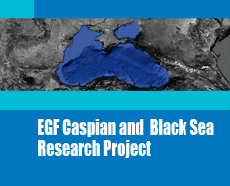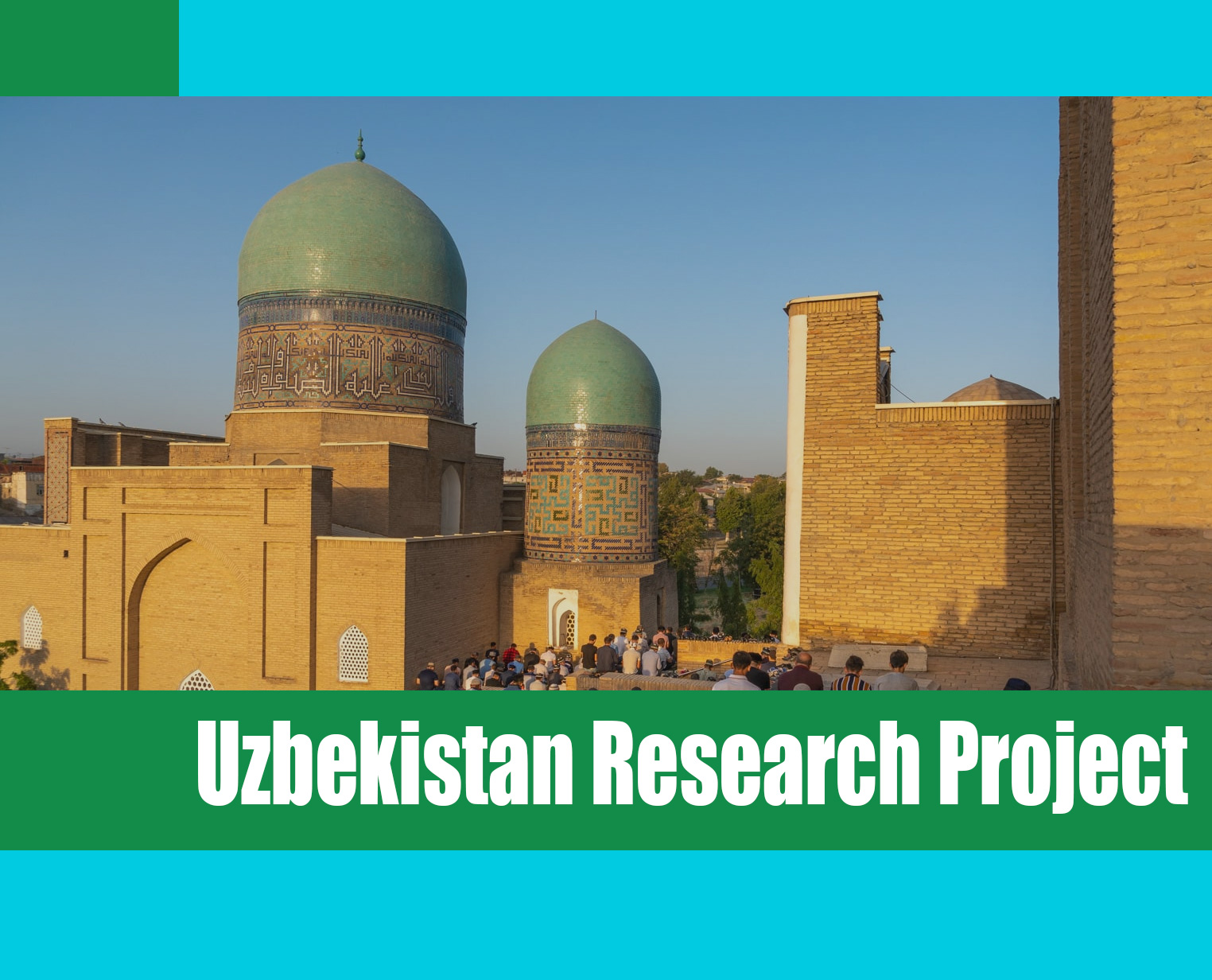
From the EGF Head of Research:
 As the war in Ukraine has escalated since February 2022 it has also become entangled with the global confrontation between the West and the China- Russia- Iran- North Korea revisionist quartet. It is therefore the responsibility of Ukraine’s regional and global allies and friends to help Kyiv devise a new war strategy that should stabilize the front line, mitigate the Russian attrition war, and start peace negotiations on realistic terms. READ MORE
As the war in Ukraine has escalated since February 2022 it has also become entangled with the global confrontation between the West and the China- Russia- Iran- North Korea revisionist quartet. It is therefore the responsibility of Ukraine’s regional and global allies and friends to help Kyiv devise a new war strategy that should stabilize the front line, mitigate the Russian attrition war, and start peace negotiations on realistic terms. READ MORE

 By Marat Terterov, PhD, Founder, and former Executive Director of the EGF
By Marat Terterov, PhD, Founder, and former Executive Director of the EGF
Small countries often find themselves having to make difficult choices when it comes to navigating optimal pathways for their national development. Their relations with larger powers, as well as competing relations between larger powers with an interest in specific regions where small countries are located, will invariably impact on their development. One of the regions of the world where the impact of larger powers on the development of smaller countries is highly evident is the South Caucasus, a region of the former-Soviet Union predominantly associated with the countries of Armenia, Azerbaijan and Georgia. These three relatively small yet important countries in a region of strategic importance have come a long way since they became independent nation states following the collapse of the Soviet Union at the end of 1991.
READ MORE
- Friday, 26 July 2024, 15:32
 By Vasif HUSEYNOV, PhD, Head of Department, AIR Center, Adjunct Lecturer, ADA and Khazar Universities, Baku
By Vasif HUSEYNOV, PhD, Head of Department, AIR Center, Adjunct Lecturer, ADA and Khazar Universities, Baku
On July 11 and 12, Azerbaijani President Ilham Aliyev paid a state visit to Pakistan to bolster bilateral ties with Islamabad. The visit came less than two weeks after Aliyev’s meeting with Pakistani Prime Minister Muhammad Shehbaz Sharif and Turkish President Recep Tayyip Erdogan for their first-ever trilateral summit. The meeting took place on the sidelines of the Shanghai Cooperation Organization summit on July 3 in Astana and was a significant milestone in elevating their tripartite cooperation from parliamentary and ministerial levels to state leadership. Both Aliyev’s visit to Islamabad and the trilateral summit of Azerbaijan, Pakistan, and Türkiye highlight the three countries’ commitment to expanding their trilateral trade and transit cooperation, as well as better integrating their military capabilities and defence production.
READ MORE
- Friday, 26 July 2024, 15:31
 By Yeghia TASHJIAN, Beirut-based regional analyst and researcher, columnist, "The Armenian Weekly”
By Yeghia TASHJIAN, Beirut-based regional analyst and researcher, columnist, "The Armenian Weekly”
On August 29, 2023, in my article “What does the expansion of BRICS mean for the South Caucasus?” I argued that Iran’s accession to BRICS and the integration of the region’s infrastructure into the International North-South Transport Corridor (INSTC) would similarly increase pressure on Armenia and Azerbaijan to join the bloc. The post-2020 regional status quo and the war in Ukraine have opened the path for new Eurasian actors such as India and China to exert their influence on the South Caucasus. Azerbaijan is the main beneficiary of this development. Positioned strategically along the North-South and East-West transport corridors, Baku has capitalized on its position to become a pivotal transportation and logistics hub in Eurasia. This has caught the attention of China amid the geopolitical shifts that took place in the South Caucasus in light of the second Artsakh (Nagorno-Karabakh) and Ukraine wars.
READ MORE
- Friday, 26 July 2024, 15:30
 By Benyamin POGHOSYAN, PhD, Chairman, Center for Political and Economic Strategic Studies
By Benyamin POGHOSYAN, PhD, Chairman, Center for Political and Economic Strategic Studies
Since the end of the Second Nagorno-Karabakh War in 2020, Armenia and Azerbaijan have been engaged in negotiations to sign a peace agreement. The process seems like a roller coaster of extreme ups and downs, reflecting the volatile and unpredictable nature of the discussions. Several times, the sides have seemed close to reaching a deal only for an unexpected circumstance to arise, causing a significant reversal during the peace talks. In late 2022, after intensive negotiations in Washington and Prague, Azerbaijan refused to appear in Brussels and instead launched a blockade of the self-proclaimed Nagorno-Karabakh Republic. Azerbaijan did the same at the end of 2023, when despite mounting hopes for an imminent agreement President Aliyev refused to attend the European Political Community (EPC) summit in October 2023 in Granada and the trilateral Armenia–Azerbaijan–European Union summit in Brussels.
READ MORE
- Friday, 26 July 2024, 15:29
 By Fuad Shahbazov, Baku-based independent regional security and defence analyst
By Fuad Shahbazov, Baku-based independent regional security and defence analyst
On June 11, Turkish Foreign Minister Hakan Fidan attended a session of the BRICS group (a loose political-economic grouping originally consisting of Brazil, Russia, India, China, and South Africa) in Moscow. While there, he met with Russian President Vladimir Putin, Foreign Minister Sergei Lavrov, and Russian Security Council Secretary Sergei Shoigu. During the face-to-face meeting with Putin, Fidan discussed bilateral economic and political relations, focusing on the geopolitical turmoil in the Middle East caused by the war in Gaza. Putin vowed to “fully support” Turkish membership in BRICS and build stronger ties to facilitate further economic cooperation. Fidan’s visit to Russia came shortly after he visited China, where he reiterated Ankara’s willingness to join BRICS and the Shanghai Cooperation Organization (SCO). These pronouncements have raised eyebrows in the West. US Ambassador to Türkiye Jeff Flake declared that Türkiye’s place is “in the West” and voiced his hope that Ankara would decide against joining the bloc. READ MORE
- Friday, 26 July 2024, 15:29
 By Alan WHITEHORN, Professor Emeritus in Political Science, The Royal Military College of Canada
By Alan WHITEHORN, Professor Emeritus in Political Science, The Royal Military College of Canada
Armenia and the South Caucasus were historically parts of the former Soviet Union, and are often considered, in geopolitical terms, to be in the so-called Moscow-influenced “Russia’s near abroad”. It might be useful, however, to recognize the significant connections of the South Caucasus to the Middle East. In fact, Armenia is relatively close geographically (under 1,000 km) to each of the capital cities of Teheran (Iran), Baghdad (Iraq), and Ankara (Turkiye) and not much farther from Israel and Lebanon (under 1,300 km). In terms of international affairs and recent conflict Turkey has been a crucial military ally of Azerbaijan during the latter’s wars with Armenia and Nagorno-Karabakh (Artsakh) in 2020 and 2023. A lesser-known fact is that, over the previous decade, Israel has been a major weapons’ supplier of Azerbaijan, particularly advanced drones that proved critical for Baku’s swift and decisive victory in the 2020 Armenia-Azerbaijan war, and its 2023 recapture of Nagorno-Karabakh, which displaced over 100,000 civilians, virtually all of the local Armenian population. READ MORE
- Friday, 26 July 2024, 15:29
 The Central Election Commission held a meeting and a series of events today, July 26th. The primary agenda item was the preparation and high-level accomplishment of the upcoming elections for the Legislative Chamber of the Oliy Majlis and the Councils of People's Deputies in full compliance with the Constitution and laws.
The Central Election Commission held a meeting and a series of events today, July 26th. The primary agenda item was the preparation and high-level accomplishment of the upcoming elections for the Legislative Chamber of the Oliy Majlis and the Councils of People's Deputies in full compliance with the Constitution and laws.
According to Article 128 of the Constitution of the Republic of Uzbekistan, elections for the Legislative Chamber of the Oliy Majlis and the Councils of People's Deputies are scheduled to take place on the first Sunday of the third ten-day period of October in the year their term expires. Considering that the term of the deputies of the Legislative Chamber of the Oliy Majlis and the Councils of People's Deputies ends in 2024, the elections will be held on October 27th of this year, and the election campaign will begin on July 26th, as decided by the Central Election Commission. READ MORE
- Friday, 26 July 2024, 15:28
- The Daily BriefJuly 24, 2024
- Stratfor 2018 Second-Quarter ForecastMarch 11, 2018
- Stratfor 2018 Annual ForecastDecember 26, 2017













